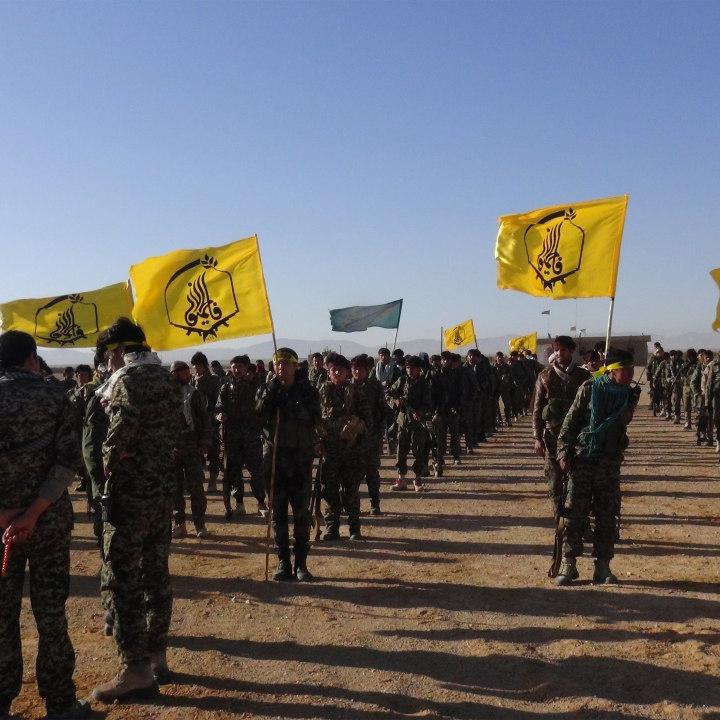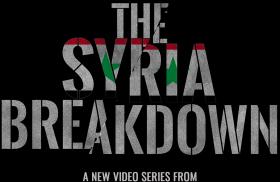
The Fatemiyoun/Zainabiyoun Influx: Iraq’s Intensified Hosting of Two U.S.-Designated Terrorist Groups

New data shows that Iran-backed Afghan and Pakistani terrorists are arriving at a broadening range of Iraqi military bases.
Soon after Bashar al-Assad’s fall, Iraq’s government welcomed hundreds of Afghan and Pakistani Shia fighters who poured over the border from Syria’s Deir al-Zour province. As Militia Spotlight previously noted, the members of these U.S.-designated terrorist organizations—Liwa Fatemiyoun and Liwa Zainabiyoun, both controlled by Iran's Islamic Revolutionary Guard Corps (IRGC)—were then moved from al-Qaim (on the border) to Popular Mobilization Forces (PMF) camps such as Jurf al-Sakhar and Camp Ashraf.
Further investigation shows that Iraq’s government—notionally headed by Prime Minister Mohammed Shia al-Sudani—has been allowing other Fatemiyoun and Zainabiyoun fighters to enter from Iran. These fighters are drawn from those who were evacuated from Russia’s coastal Hmeimim Air Base after being stationed in northern and central Syria.
Since the start of January, the IRGC appears to have been reinserting hundreds of these troops into Iraq as unarmed pilgrims. After visiting Shia shrines at Karbala, Najaf, Kadhimiyah, and Samarra, the fighters have then been integrated into PMF bases around the country. These bases include:
- Abu Muntadher al-Mohammedawi (Camp Ashraf), a Badr Organization camp in Diyala.
- Martyrs Camp, a Shia Turkmen Badr camp near Amerli in Salah al-Din province.
- Bashir, a base manned by Quwat al-Turkmen (the 16th PMF Brigade) at Tuz Khormatu in Kirkuk province, again with a strong Badr connection.
- Al-Imamain al-Askariyain Training Center, a camp in Balad, Salah al-Din province, run by the PMF training directorate.
- Saqr Camp, a Kataib Sayyid al-Shuhada camp in southern Baghdad.
- The Public Security Forces School camp in Rusafa, Baghdad.
Iraqi Shia leaders involved in the movement of these terrorist personnel include:
- Kataib Sayyid al-Shuhada commander Ahmed Khudair al-Magsusi, who heads the PMF's 14th Brigade and Wasit Operations Command, with control of the Zurbatiyah border crossing.
- Badr Organization figure Talib al-Musawi, head of the PMF's Diyala Operations Command.
- Another Badr commander, Hamid Ibrahim Abdal-Reda al-Sahlani (aka Abu Hussam), the jihad assistant to Badr leader Hadi al-Ameri.
- Nabil Isa al-Bashiri (aka Abu Thaer al-Bashiri), commander of the 16th PMF Brigade, another Badr unit.
- Maj. Gen. Hassan Jawad al-Silawi, the new director of Iraqi military intelligence appointed by Prime Minister Sudani in December, also a Badr-linked commander.
Despite the prominence of Badr personnel, other fasail (armed groups) are also involved in facilitating the movements of Fatemiyoun and Zainabiyoun fighters, including Kataib Hezbollah, Harakat Hezbollah al-Nujaba, Asaib Ahl al-Haq and Liwa al-Tafuf .
Questions About Iraq's Import of Terrorists from Iran
Policymakers and analysts should ask why Iran is feeding these fighters into Iraq instead of holding them at its own bases or repatriating them to Afghanistan (Pakistan does not appear to welcome the return of Zainabiyoun fighters and has designated the group as a terrorist entity). And even if the fighters entering Iraq were purely Pakistani, why are they being foisted onto Iraq, apparently for Baghdad to feed and pay with funds appropriated for PMF units? Are these forces intended to bolster PMF units in Sunni areas of Iraq—as some contacts suggest—or will they be fed back into Syria at some point?
The policy question for the U.S. government remains the same: why is Iraq—a U.S. economic partner and substantial aid recipient—providing terrorist groups with housing and other material support when such actions clearly require the imposition of U.S. sanctions? Washington should also ask who approved the entry of these fighters and permitted them to remain at Iraqi bases. Either Prime Minister Sudani gave terrorists permission to shelter in Iraq, or he has little control over Iraq's security environment and cross-border movements.




